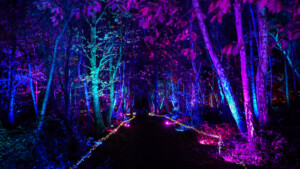IALDA (International Amusement & Leisure Defense Association) is dedicated to providing the theme park and attractions industry with legal and regulatory counsel. Blooloop’s Chad Emerson recently interviewed David Daly (below left) , IALDA president, and Michael Amaro (below right), immediate past president on legal happenings in the amusement park industry.
By Chad Emerson
Blooloop: How did you two get started doing legal work in the amusement industry?
Michael Amaro: I grew up between Knott’s Berry Farm and Disneyland, and spent many a day and night at those parks. We would be the first ones in, and the last to leave. Also, I always had a connection with Disneyland, since we share the same birthday. When I became an attorney 25 years ago, I thought that working with amusement parks would be a nice niche for a practice area. The law firm that I worked for at the time handled some work for FECs and waterparks, and hence, I sought out the partners that were handling those matters.
David Daly: I started out in the industry representing roller skating rinks about 25 years ago. After becoming a member of the New England Association of Amusement Parks and Attractions (NEAAPA), I was asked to be on the Association’s Board in order to help expand the membership into other areas of the industry. Consequently, my practice also expanded into other areas such as fixed parks, FECs, mobile shows and carnivals.
Blooloop: What are some ways in which IALDA supports the amusement industry?
MA: Each year, IALDA members volunteer their time and energy to present seminars at various trade shows, including IAAPA, IALEI, WWA, BPAA, RSA and many more. We have also drafted Risk Management Guidelines for various trade groups and industry associations. In addition to seminars, IALDA has an expert witness database that contains CVs of experts available to the amusement industry; the database also contains transcripts of experts used by the plaintiff’s bar. Fina lly, IALDA board members are intimately involved in legislation on a state and federal level.
lly, IALDA board members are intimately involved in legislation on a state and federal level.
DD: One way we help is by opposing increasing and burdensome fees being placed on the industry. In Massachusetts, OABA [Outdoor Amusement Business Association] recently filed suit against the Massachusetts Department of Public Safety (DPS) to prevent the DPS from, among other things, implementing an additional fee structure on amusement interests in the Commonwealth. We claimed that such fees were a tax, were unauthorized by the existing statute and were contrary to the Massachusetts and U.S. Constitutions. In a spirit of cooperation, NEAAPA had made these arguments to the regulators during the process under which these fees were promulgated prior to filing suit. We did obtain the preliminary injunction from the Suffolk Superior Court in Massachusetts about a week and a half ago. The preliminary injunction maintains the status quo, and prevents the DPS and the Massachusetts Executive Office of Administration and Finance from implementing and collecting the inspection and re-inspection “fees” until the court renders its final judgment on the issues raised by the OABA in its complaint. The fees were scheduled to go into effect May 1, 2009.
Blooloop: What are some of the biggest legal issues facing ride operators this year?
MA: In the US, mobile ride operators or large amusement parks that do business in more than one state face the challenge of complying with different rules and regulations. Unfortunately, the regulations for ride operators are not consistent, and differ from state to state. California ride operators currently are facing a dramatic proposed increase in inspection fees. Currently, the hourly rate for inspectors is approximately $125 per hour, and the new rate that is being sought is $300 per hour (over a 150% increase). Such fees far exceed what we, the attorneys charge the operators!!
DD: Overreaching of the regulators is becoming a big problem. With the fiscal crisis occurring at all levels of government, there seems to be a big push by government to increase revenues from the regulated. In so doing, there is a tendency to expand the domain in which the regulators work to increase those fees. For instance, in Massachusetts the statute talks about amusement devices being licensed; however, challenge courses have been deemed to be a subject of amusement device regulation by the current commissioner. Is such regulation really authorized under the statute?
Blooloop: How about ride manufacturers? What are some of the biggest legal issues facing them?
MA: US Senator Markey continues to try to convince Congress to amend the CPSIA [Consumer Product Safety Improvement Act], to have the CPSC [Consumer Product Safety Commission] have oversight responsibility over fixed parks. Opposing such efforts is always a challenge.
DD: Overreaching of regulators is also the problem with regard to manufacturers. We have encountered instances where regulators believe themselves very capable of designing and modifying rides. This is certainly not a safe approach and may ultimately be dangerous to patrons. When I see the depth of knowledge and expertise on a daily basis that exists in the manufacturing part of the industry, I am comforted that, for the moment, we can work our way through these issues with the regulators. Certainly, these issues are very apparent in the State of New Jersey. IALDA members, along with many others, are
addressing these issues through membership and participation in ASTM International.
Blooloop: Looking ahead, what new legal challenges do you potentially see on the horizon for the amusement industry?
MA: The amusement industry as a whole is being targeted by many state legislators, as a source of income (via tax) to make up for various state deficits. Opposing those efforts on a state-by-state basis, will be challenging. In the face of shrinking savings and incomes, amusement parks offer a much-needed escape. Indeed, the cost of admission needs to remain affordable to average citizens and their families.
DD: The industry is becoming a very technical one on many different levels. In the US, regulators cannot keep up with the electronic and technological advancement of today’s rides. They are relying more and more on the industry to lead the way. There needs to be a fresh look at the statutory and regulatory structure in many of the states in order to keep up with these modern highly advanced rides. The industry will need to take the lead and participate with the regulators to ensure that the highest quality of maintenance, operation and training is continued in the industry with reliance on ASTM standards. This may cause a trend toward the establishment of tramway type boards in each of the states, made up of experienced and well trained industry leaders along with a member or members of the public and the regulatory agency. These boards would be fashioned to promulgate regulations and guidelines and implement them through the assistance of the appropriate governmental entity. The challenge will be to substitute, at the leadership level and not the implementation level, the use of untrained and inexperienced employees of a regulating authority with experienced professionals in the industry.
See also:
Amusement Parks: Viral Marketing and the WOW Factor at Disney
Branded Attractions: Visitors Experience Beer and Boats at Rotterdam and Heineken Centers
Exit Interview: Cindy Gordon moves on from Universal Orlando
Attractions: Cause Marketing Can Boost Business
Amusement Law: There’s more than bad guys lurking around the corner at a Wild West Show










